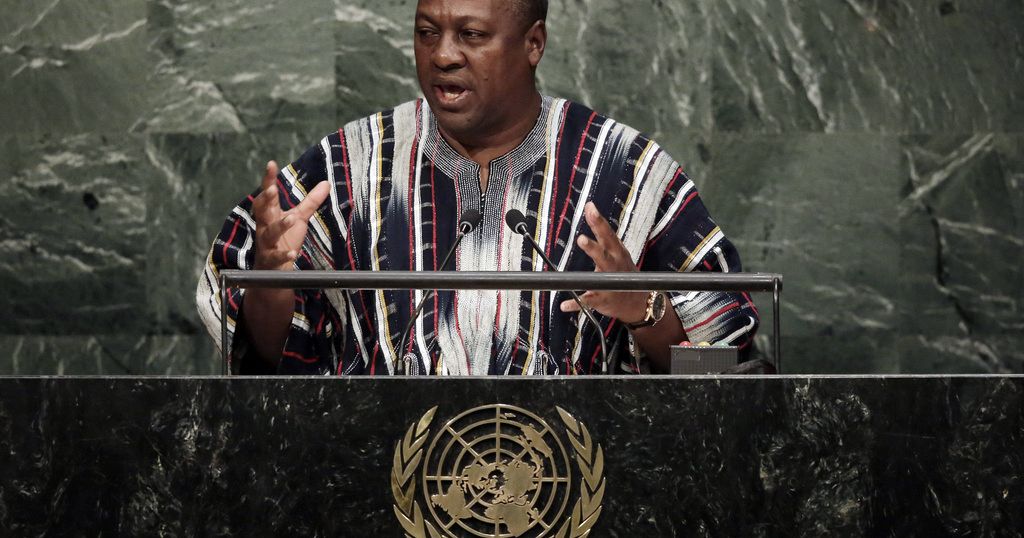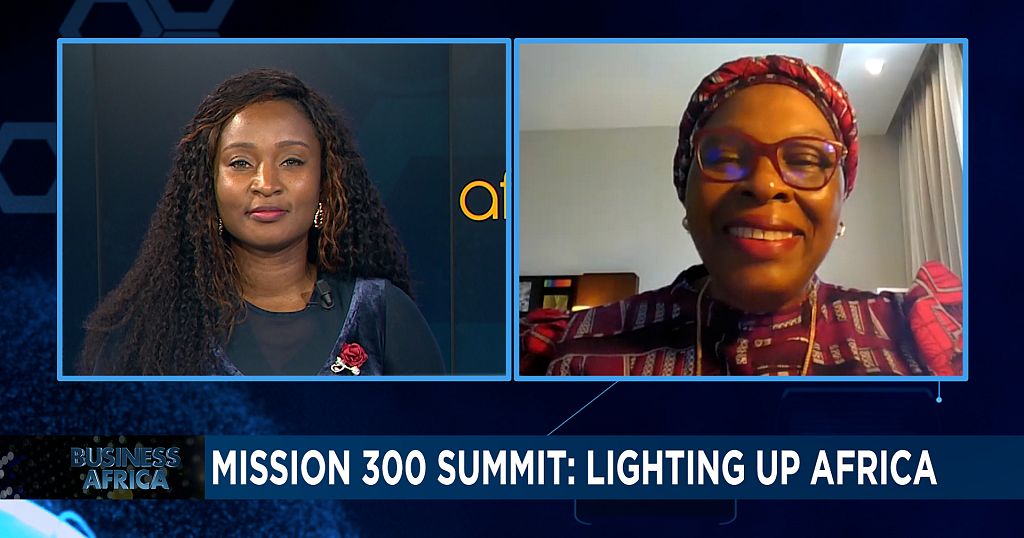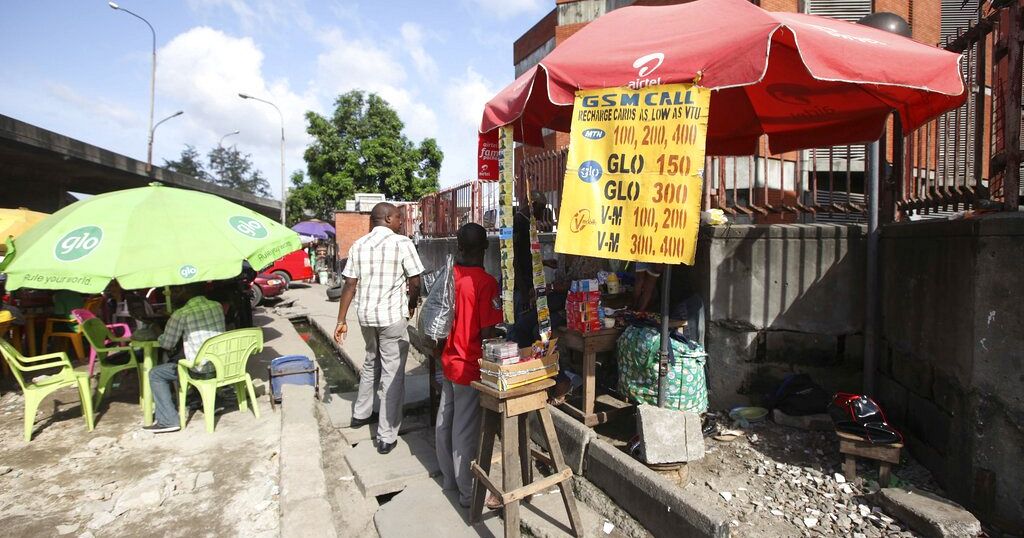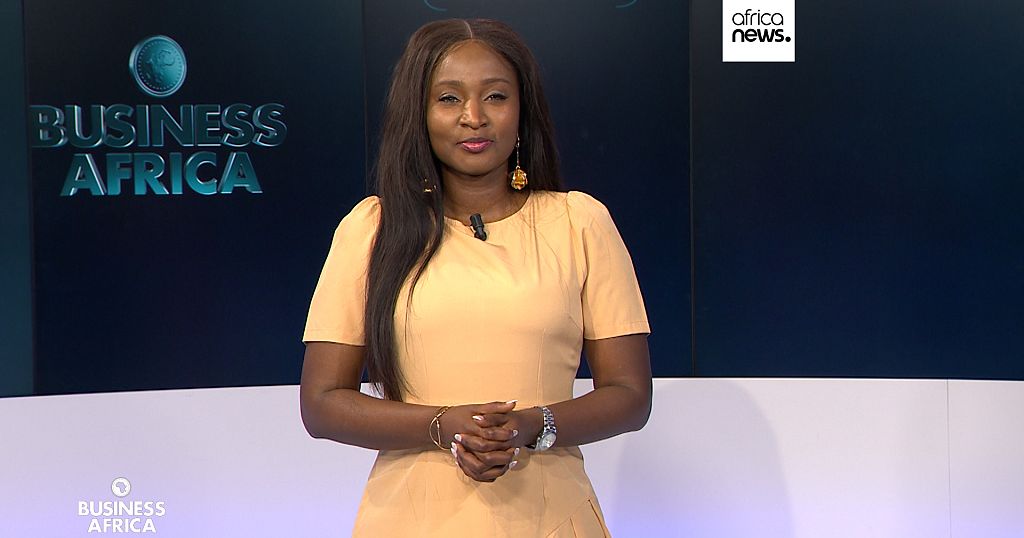Alain Nkontchou was appointed Chairman of Ecobank Transnational Inc in June. In an exclusive interview with African Banker he discusses the impact of Covid-19 on African economies and other issues with editor Anver Versi
The Cameroonian Alain Nkontchou was appointed to succeed Nigeria’s Emmanuel Ikazoboh (who had completed his six-year tenure) as Chairman of Ecobank Transnational Inc (ETI) in June.
Nkontchou is the Managing Partner and co-founder of Enko Capital Management LLP, an asset management company, based in London, Johannesburg, Abidjan and Mauritius, which focuses on African investment opportunities.
He was an advisor at Laurent Perrier champagne, having been a Non-Executive Director from 1999 to 2009. He was Managing Director of Credit Suisse’s Global Macro Trading Group in London and at JP Morgan Chase & Co. between 1995 and 2008. Between 1989 and 1994, he was with Chemical Bank in Paris and New York, where he became Vice-President, Head of Trading and Sales.
Nkontchou has an enviable track record of success, having generated significant dollar revenues for each of these top-tier institutions.
He has an MSc in Electrical Engineering from Supélec and P.M. Curie University, Paris, and an MSc in Finance and Accounting from ESCP (Ecole Supérieure de Commerce de Paris). He discusses the impact of Covid-19 on African economies and other issues in this exclusive interview with African Banker editor Anver Versi.
Your appointment comes at a very critical time for Africa and the world. Both correct and incorrect decisions, have very long-term consequences. How have your past experiences prepared you for your new role as Chairman of the bank?
My past experience with Ecobank is as an investor since 1994, and a member of a non-executive committee since 2015. I have an in-depth knowledge of Ecobank, its operation, its purpose, its resilience, its proud history and absolute commitment to all things African.
From a professional perspective, I have been an asset manager focusing on Africa for almost 12 years now. Prior to that, I come from a background of global market trading for JP Morgan and Credit Suisse, in London and Paris.
In that environment, I have had to make considerable investments within Africa in the form of debt and to do so, I have had to possess an understanding of the micro dynamics underpinning the African environment and economy.
I think I have a decent understanding of the economic cycle in Africa, the fabric of the economy, and the environment in terms of risk-taking. All of these factors are of help to the Bank, especially from a credit risk perspective and the overall risk management.
Do you feel that people making big decisions have to be much more flexible, given that we are in an environment that is changing so much?
Indeed. The fact is that we are facing a combined shock of supply and demand at one go – something that banks, as the centre of any economic environment, will have to face and acknowledge.
It is going to translate into a certain amount of loan impairments in balance sheets, that’s for sure.
As far as Ecobank is concerned, we are getting closer to our customers. We are finding new ways to serve them; trying to understand the situation they are in and help them find ways they can survive this tough patch.
The short-term impact of Covid-19 and the subsequent lockdowns is essentially one of liquidity at the country level and at the bank level. We believe that we are addressing that in the right way.
In this environment the banking system should get some help from the Central Banks and regulators. That’s something that has been happening in most of the countries where we operate.
Coupled to that short-term factor, what came as another shock is the way we do business. We have had to work in a situation where there were essentially no economic flows as most of the countries where we operate were locked down – and still are.
We have had to work within the boundaries that technology allows – which is essentially digital. That’s showed how important that technology is going to be going forward. Within the banking sector, we believe that as the institution that has made quite a large investment in that direction, we are very well placed to harness the benefits that the prevailing conditions demand. It means deeper digitisation.
In a broader perspective, what do you think African countries should be doing now to mitigate some of the Covid-19 economic fallout?
Obviously, we have to face supply and demand shocks simultaneously. Most African governments have applied for, rightly so, some measures to alleviate the fiscal position which is going on.
You have bilateral debt reprofiling, and multilateral rapid credit facility (RFC) and rapid financing instruments (RFI) from the IMF – Cõte d’Ivoire got $885m, Nigeria $3.4bn, Senegal close to $445m. Those kinds of loans that come without any strings attached will go a long way to helping those countries expand fiscally.
There has been unprecedented fiscal and monetary expansion in the developed world, and it should also apply to Africa to some extent. We don’t have the ability to create monetary expansion as much as the others can, but these measures are definitely helpful.
However, it may not be enough. On a bilateral basis, countries were allowed to freeze debt payment for up to the end of this year, but we know that given the severity of the shock, this will not be enough. We understand that countries are negotiating to extend the freeze a little longer. Concessional loans also allow African countries to cushion the shock. In addition, some countries have increased their domestic borrowing to increase spending.
But to ride out this storm, countries must upscale their medical infrastructure to support Covid-19 victims and prevent further infection, and provide capital to the private sector to allow them to absorb the shock.
The vital capital injection into economies should not be confined solely to governments – the private sector should become involved as well; and banks should be at the forefront of this.
The big question now of course is how long will it be before the situation returns to normal, borders open and trade can resume? It will be interesting to see whether we get an L or V shape of recovery as we come out of this crisis.
Vera Songwe, the Executive Secretary of UNECA, wrote an article in the Financial Times where she proposed setting up a special purpose vehicle (SPV) whereby African countries would set up their own repo markets and drive down the cost of borrowing. You wrote a letter to the newspaper, challenging the theory. What is your stance?
I expressed my own thoughts on the subject. As I said in my letter: “The scheme, as described, would provide financing to investors willing to buy additional debt from selected African countries.
“However, such an initiative would not guarantee a reduction in the financing costs of their debt. Interest rates on market-based loans or Eurobonds are a function of the perceived debt sustainability of the issuer and the proposed vehicle does not appear to offer a credit enhancing mechanism.
“Repo markets provide liquidity (or leverage) to investors, but do not necessarily reduce the cost of borrowing for the issuer. Nor do they alleviate the solvency risk.
“If the ultimate objective is to reduce African borrowing costs, the countries themselves will need to, firstly, wean themselves from their dependency on commodity exports for economic growth.
“And secondly, make productivity enhancing investments that effectively leverage their potential capital and labour growth to attain the best growth multiplier.
“This would stabilise their external balances, reduce macro volatility and eventually achieve strong economic growth. Long-term economic reforms will eventually drive down borrowing costs and increase debt sustainability, as demonstrated by the experience of Morocco, Botswana and Namibia, all benefiting from relatively low borrowing costs.
“Furthermore, we should not forget the all-time low interest rates some African issuers achieved prior to the Covid-19 crisis. Ghana issued a $750m 41-year Eurobond at a yield of 8.75% in January and last year Benin issued a 7-year bond at 6%, which raised €500m.
“The immediate challenge facing African countries is liquidity. Solutions to that issue can parallel the bold fiscal and monetary expansion that developed countries deployed to cushion the economic impact of the virus.
“While such countries can monetise their debt, African countries could be provided with liquidity from developed countries or multilaterals in the form of long-term zero-coupon debt at a rate of 1 per cent or less.
“Such an initiative could act as a backstop to the current liquidity challenge and eventually address the potential solvency threat.”
That about sums up my opinion on the matter.
There is a belief that the credit rating agencies are too harsh on Africa. What is your reading of that?
As an investor, I don’t always listen to credit agencies to decide whether I like to invest in a country or not.
If I’m expected to take risk through an investment in a given country, I’d rather do my homework properly and thoroughly and make sure that these opinions are formulated through a debt sustainability analysis framework that I am fully comfortable with. At times, this process may include rating agencies research, even though they don’t necessarily have skin in the game. That’s the bottom line.
The enormous disruption in international trade caused by the virus has underscored Africa’s vulnerable dependence on commodities. How can we change this?
You can’t change it overnight – but at the very least, we have to recognise that the revenue or the wealth that we derive from extractive commodities is not forever. It’s cyclical, volatile, makes us dependent and less in control of our destiny.
Yes, it provides income, but that income doesn’t give us any power or any buffer to manage downsides in the cycle. Therefore, we need to treat commodities not as current earnings for ever, but as a windfall.
I have a suggestion that is made up of thirds: One third of the revenue goes to current investment, one third to current spending for government, and one third goes to future generation. And, this becomes entrenched in the constitution and we don’t shift from that except in case of a major economic shock…say 5% of GDP.
It means that one third is used to build productivity-enhancing capacity – power, water, electricity, etc. The right multiplier will lower the cost of doing business in that country – or at least lower the cost of capital.
Current spending is also normal; and the last third, the investment into the future, acknowledges that commodity-based revenues cannot be guaranteed. It can also provide for the rainy day when your economy loses 5-10% of GDP, as is happening now.
If you impose those conditions on yourself, you realise that you need to find other sources of revenues. Therefore, you start the process of diversifying away from extractive commodities simply because you cannot just live on that.
How do you do that? The average age of our populations is 18 years old – which can be either a good or a bad thing. We need to educate the youth; this is how we are going to achieve productivity over the long term. We also need to invest further in our infrastructure in order to lower the cost of capital and lower the macro volatility of our economies.
In doing so, those countries will become more attractive to investments seeking competitive returns, while governments will enjoy an increase in fiscal revenues and an increase in labour participation within their economy.
We need to find ways to produce for large and integrated local markets which will offer optimal size and make our economies more resilient to external shocks.
Even in the most industrialised advanced countries, the SME sector is the one that employs more people than any other, but in Africa, SMEs are regarded as the ‘ugly sister’. How do we change this?
Absolutely right! We must support them by providing them with permanent capital.
One of the reasons why SMEs are not getting enough capital is the perception of risk. Lending is essentially asset-based and an SME doesn’t necessarily have assets. So, if you cannot find other ways to mitigate risk – like cash flow based or other ways – then you are going to starve them of credit.
In the classic situation, when there is a lack of confidence in the ability of the debtor to repay the debt, somebody has to provide that implied guarantee and a trusted independent legal framework – that’s where government could play a major role. DFIs also do that to a certain extent.
Governments could induce banks to hold a certain amount of loans to SMEs in their balance sheet and tell them, ‘we will take the first 20% loss in terms of credit’. This will encourage banks to review their risk assessment and hopefully expand their exposure to the SME sector sensibly.
For 70 years we’ve been talking about industrialisation and still nothing has happened. Asia started at the same time as us and look where they’ve got. From a pan-African perspective, how do you kick-start it?
It makes sense to think that we need to move to the next stage even though we haven’t mastered the agricultural side, the primary sector, first.
When it comes to industrialisation, you want to be in an environment where companies can produce most efficiently at the lowest cost possible, with enough margin to become prosperous down the road.
China has 1.3-1.4bn people but it is one country; Africa has 1.3bn and 54 countries. That in itself is a weakness from a starting point.
What this means is that we have to first build a minimum market size within our own areas which supports several aspects – customs tax policy, micro policy, exchange rates and free circulation of goods. Then ring-fence the market because by definition, you don’t create a market if you can’t protect it.
That is the vision behind the African Continental Free Trade Agreement. It’s good that we all understand that we need a domestic market because that’s our natural low-hanging fruit. If you can effectively tap into your own market, you will create the multiples that you need to allow you to better withstand macro shocks through the potential resilience of domestic demand.
Yes, in global terms, we have a labour cost advantage as far as manufacturing is concerned but where we are losing is that the effective cost of capital is just too high.
I have no problem with AI and robotics, they increase productivity, but there are still other goods which require manpower.
European industries manufacturer auto parts, electrical components and so on in some North African countries because it is more cost-effective and there are benefits of proximity. However, there are other products that can be manufactured in sub-Saharan Africa – for example, shoes and textiles in Ethiopia, Rwanda, Kenya and so on.
While it is easy to conceptualise the situation as I have done, what is required is political will and that requires some give and take.
Talking of currency, what is your opinion about the changes to the CFA?
As a consequence of the CFA being pegged to the euro, we’ve inherited low inflation and we also have relatively low interest rates: Côte d’Ivoire borrowed at roughly 6% while Ghana (which is not in the CFA zone) has been borrowing at 20% for the past five years, with inflation between 12-19%. It’s the same for Nigeria over the past five years. This is a very punitive proposition.
The only problem is that if somebody is guaranteeing your currency (i.e. France) it brings in other factors. If your currency is pegged to another currency, it means your ability to buy and sell it is curtailed and you will not have an independent monetary policy. The bottom line is your ability to expand your debt stock or monetary base has to be limited, by definition.
Above all that, can you sustainably grow an economy over the long term with somebody else’s currency? No, obviously not. Having said that, the CFA countries could leverage from low cost of capital and relatively low inflation to boost investments and economic growth as much as possible.
Right now, Nigeria and Angola have relatively high rates while Senegal and Cõte d’Ivoire, which are in the CFA zone, have had decent growth.
Coming back to the bank itself, you’ve had, from your perspective, problems in Nigeria, you said you would fix Nigeria. How are you going to do this?
The problem in Nigeria comes from legacy loans that we had through an acquisition, seven years ago or thereabouts. Coupled with that, there has been over- exposure in commodities that haven’t done well.
It has been contained; we have set up a resolution trust that is trying to work out the debts of those non-performing loans and a strategy has been revised as a whole within Nigeria.
As we are slowly beginning to come out of the crisis, what sort of lasting changes do you see for the banking industry as well as the economic set-up in Africa?
There is a realisation that relying on the single supply chain is a big risk to many countries. This was demonstrated in the difficulty many faced in obtaining vital goods during the pandemic.
So we have probably gone too far in globalisation, becoming too interdependent to the point it could affect our own safety.
Africa is in a very good position over the medium term because with the African Continental Free Trade Agreement, we have a situation where we can create a sizeable market for ourselves for our 1.3bn customers.
The other realisation is the importance of technology, digitalisation. For four months, we’ve been working from home and broadband has shown us that I can talk to you without taking a plane to meet you and have a deal that is concluded efficiently. [The interview was conducted on Zoom.] Broadband is now as important as building roads.
Ecobank is very well positioned to reach our customers across our markets, serve them efficiently in terms of payment systems, lending and every other financial service – hand in hand with our associates such as MTN, Visa and MasterCard.
All that will allow us now, as a bank, to be in a very good position to tap into what is going to become the new way of doing business.
Are you optimistic and enthusiastic about Africa?
I’m realistic. As an investor I have to be mindful of the fact that my primary concern is returns over the medium term. Therefore, I can see the opportunities, I have a view from a micro economic environment.
I believe this shock is transitory. Africa has had a less negative immediate effect from the virus than most other countries. Therefore, we stand to recover probably as fast as anyone else.
I have the basis to be optimistic, it’s up to us now to make sure it’s actually realised. As an investor I judge as we go along and validate as we move on. We have the tools in our hands to achieve that.
Related articles
Ecobank’s Ade Ayeyemi: Give banks the flexibility they need to put the economy back on its feet
Credit rating agencies’ harsh stance is hurting Africa






![The Okwelians: Unlocking New Economic Paths for Cameroon [Business Africa]](https://static.euronews.com/articles/stories/09/12/73/92/1024x538_cmsv2_85da6520-a13b-50c2-b20b-6172b1388b3a-9127392.jpg)

